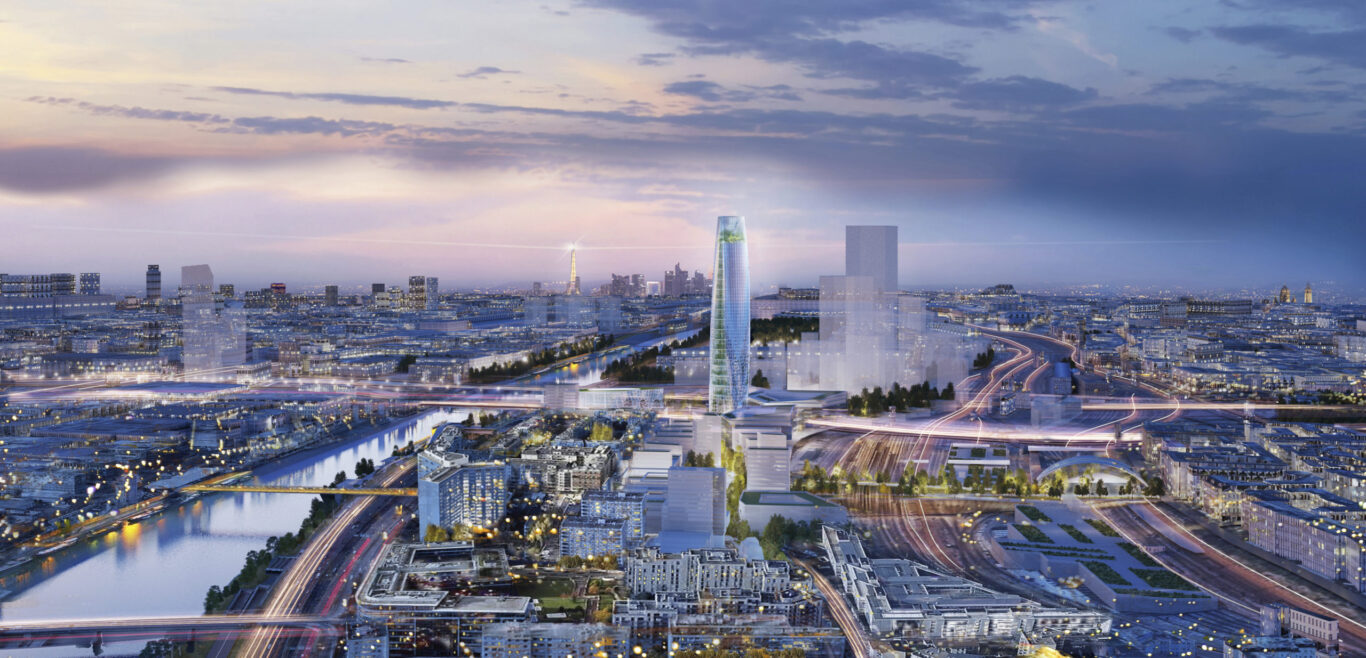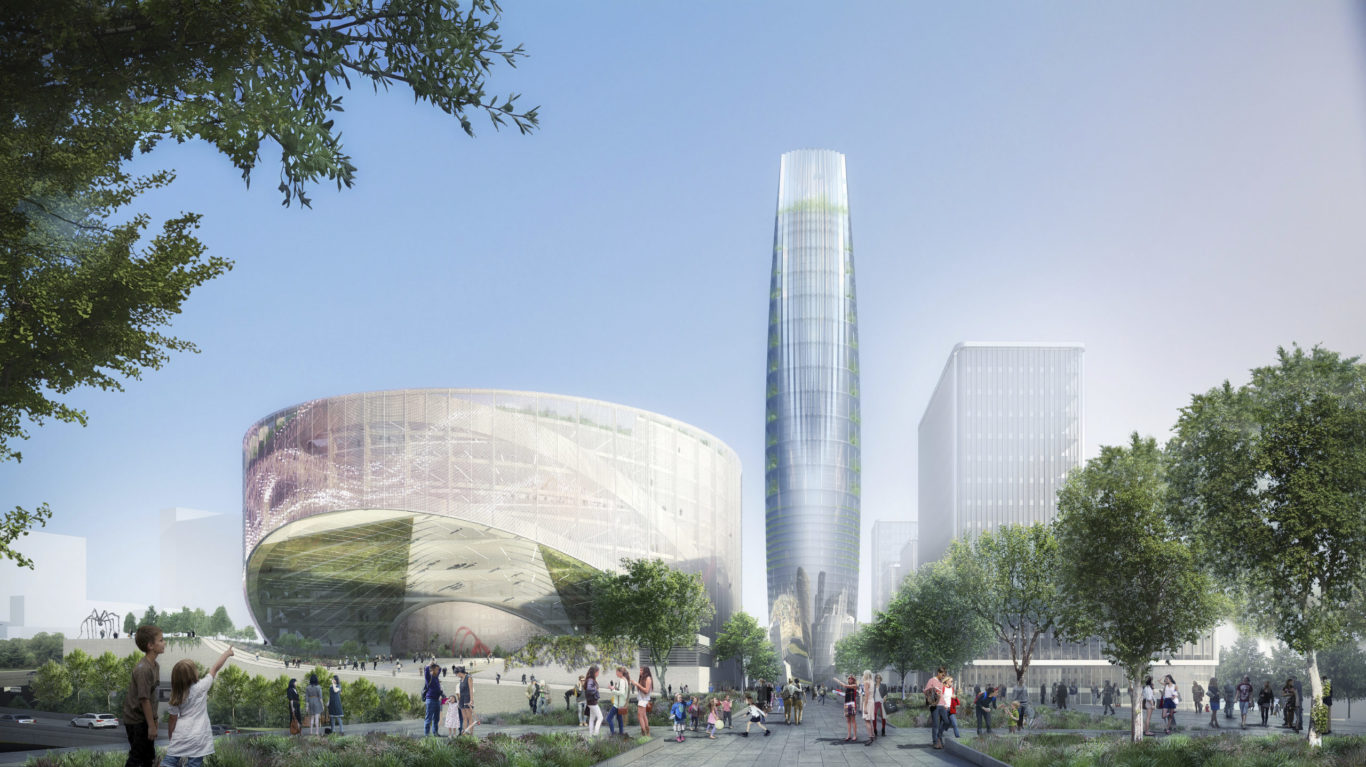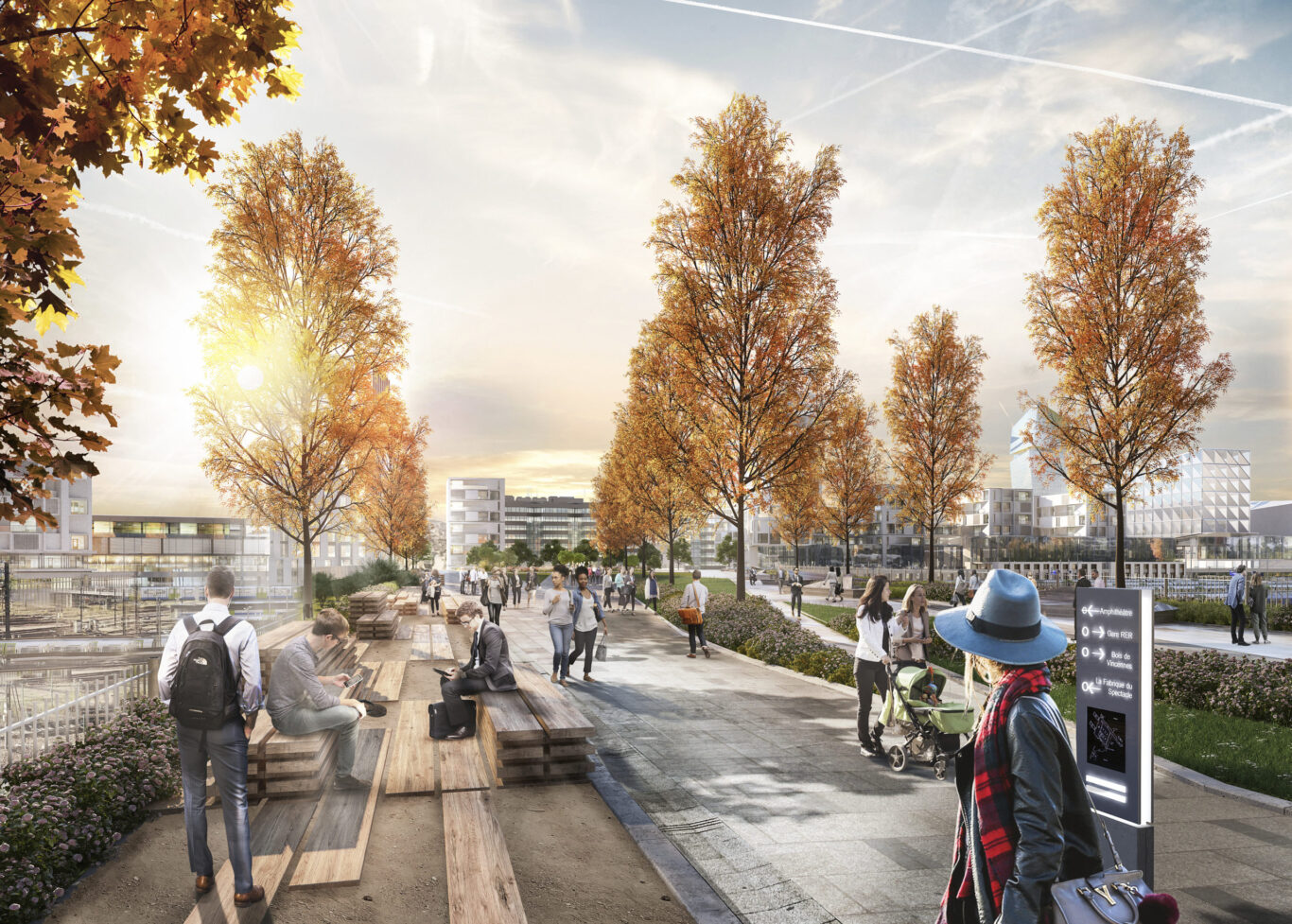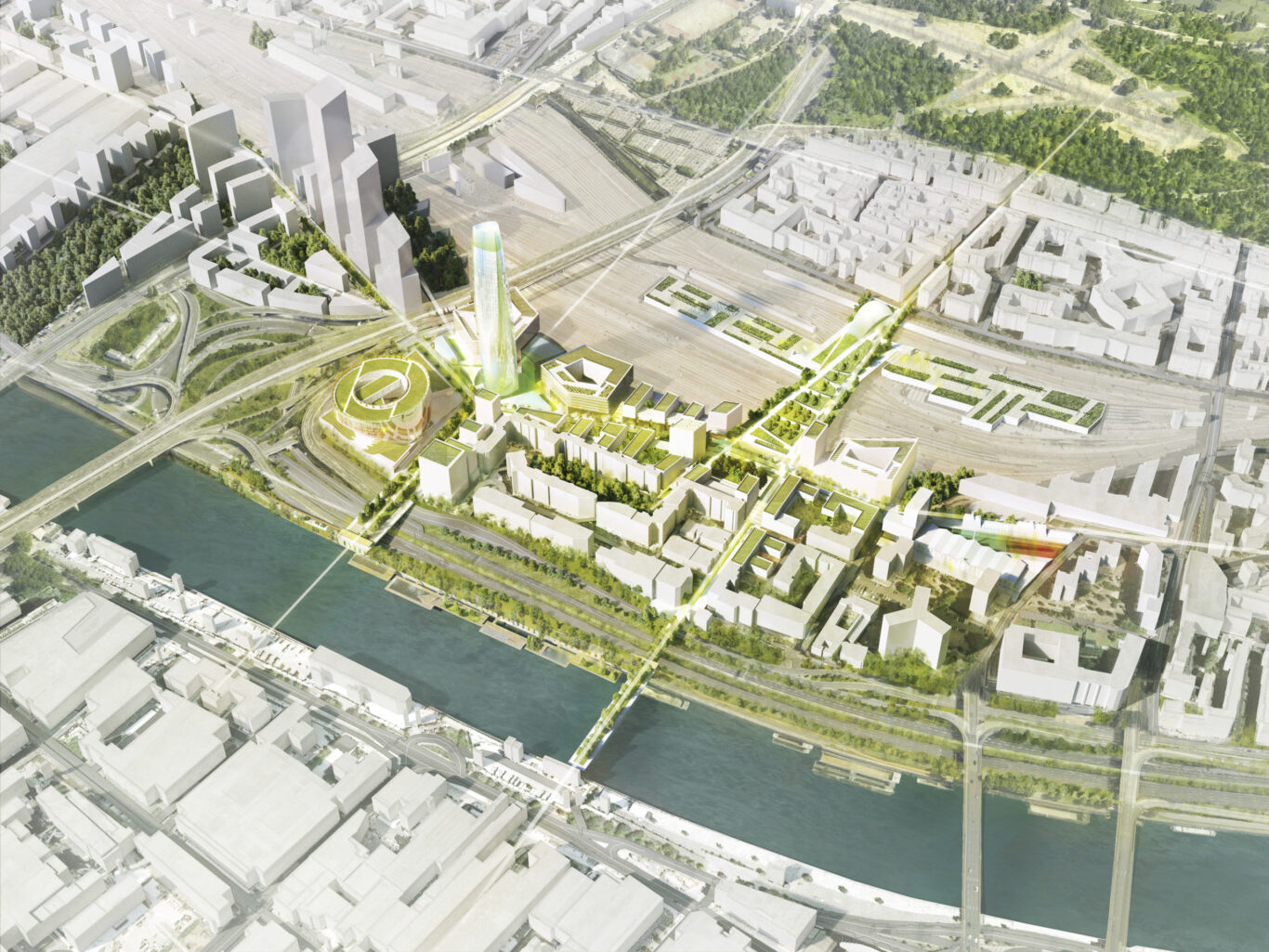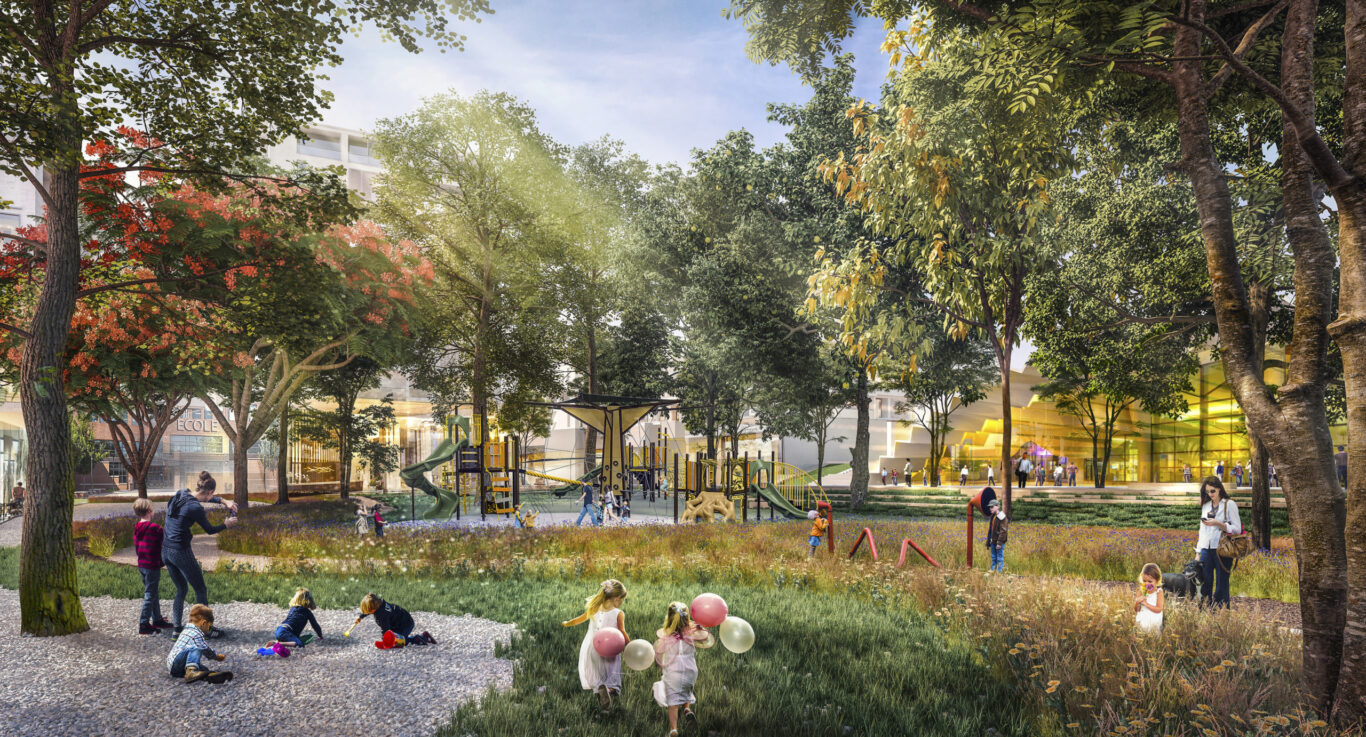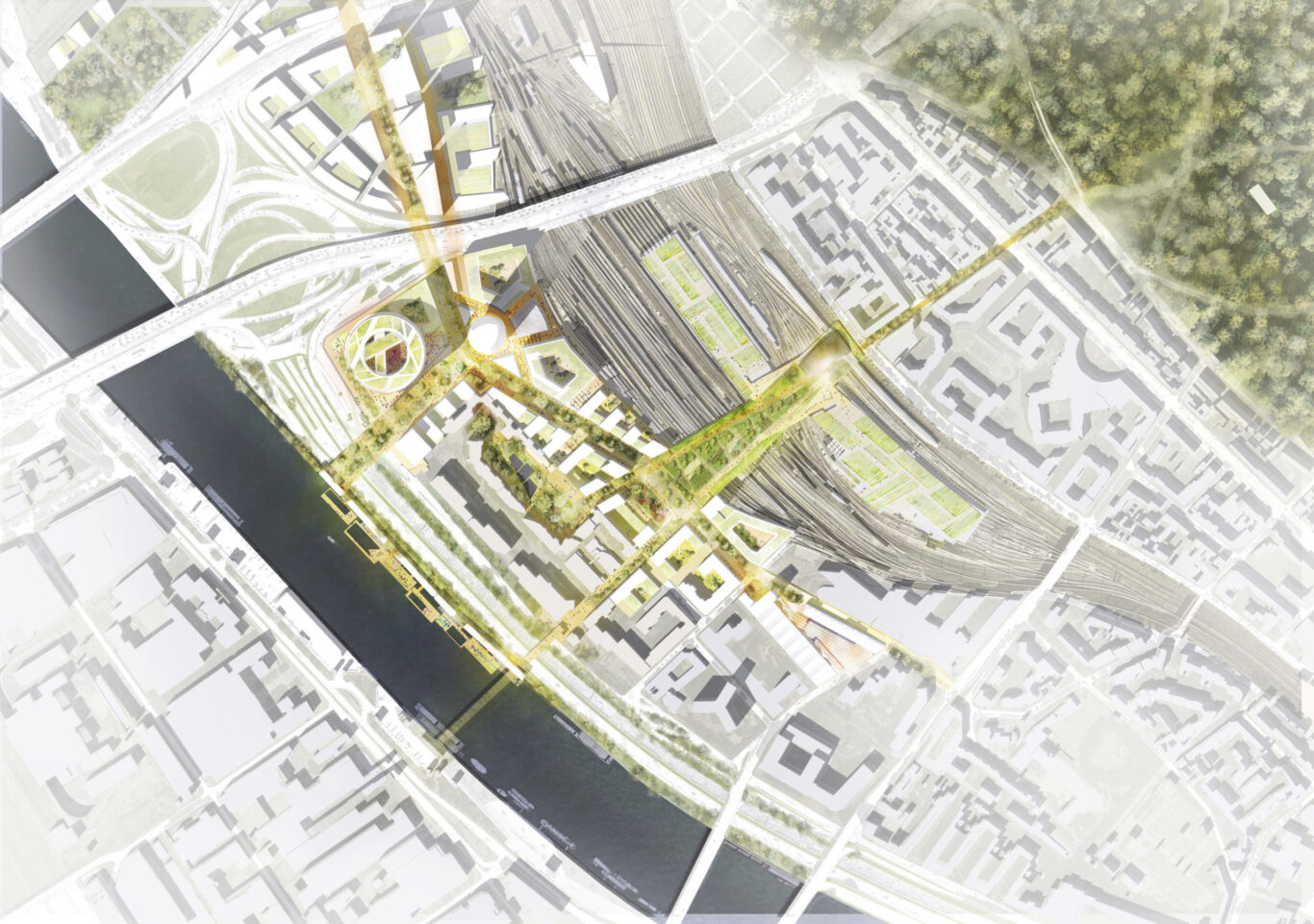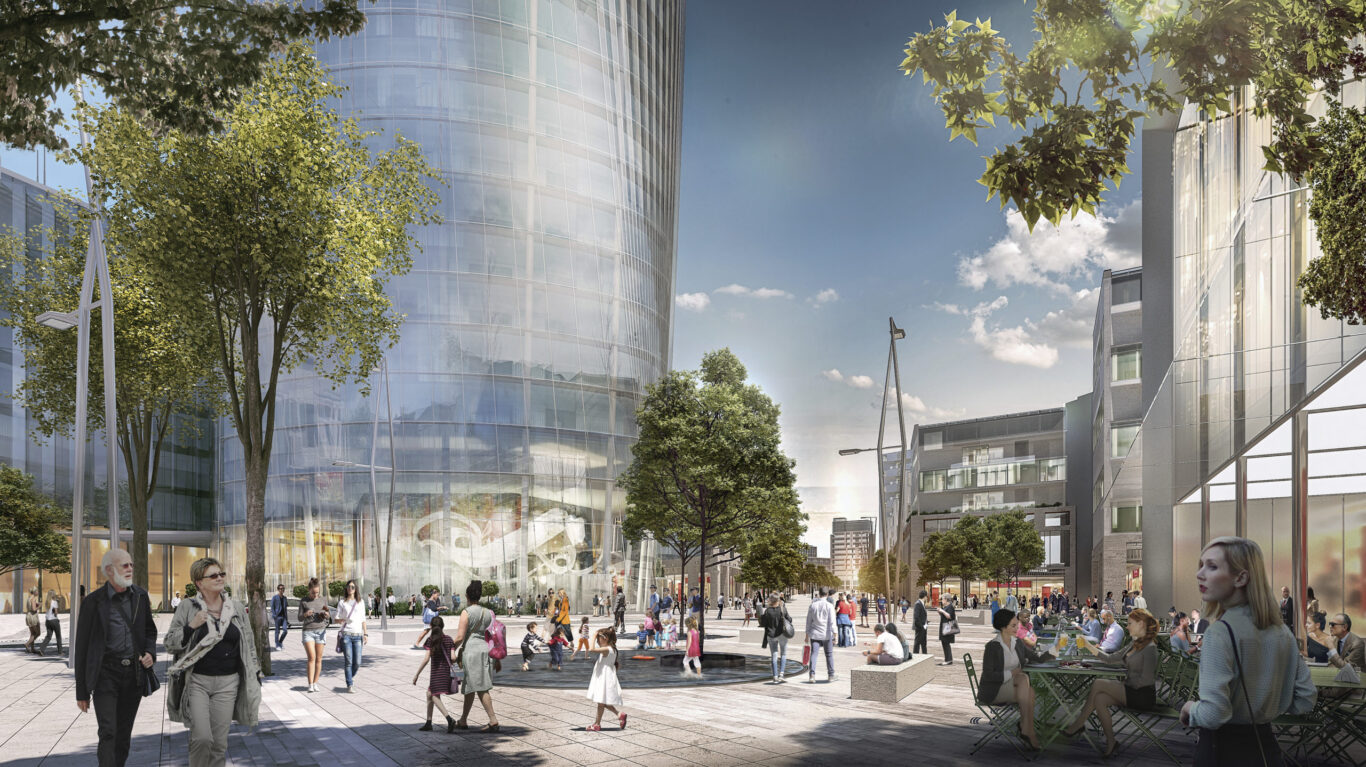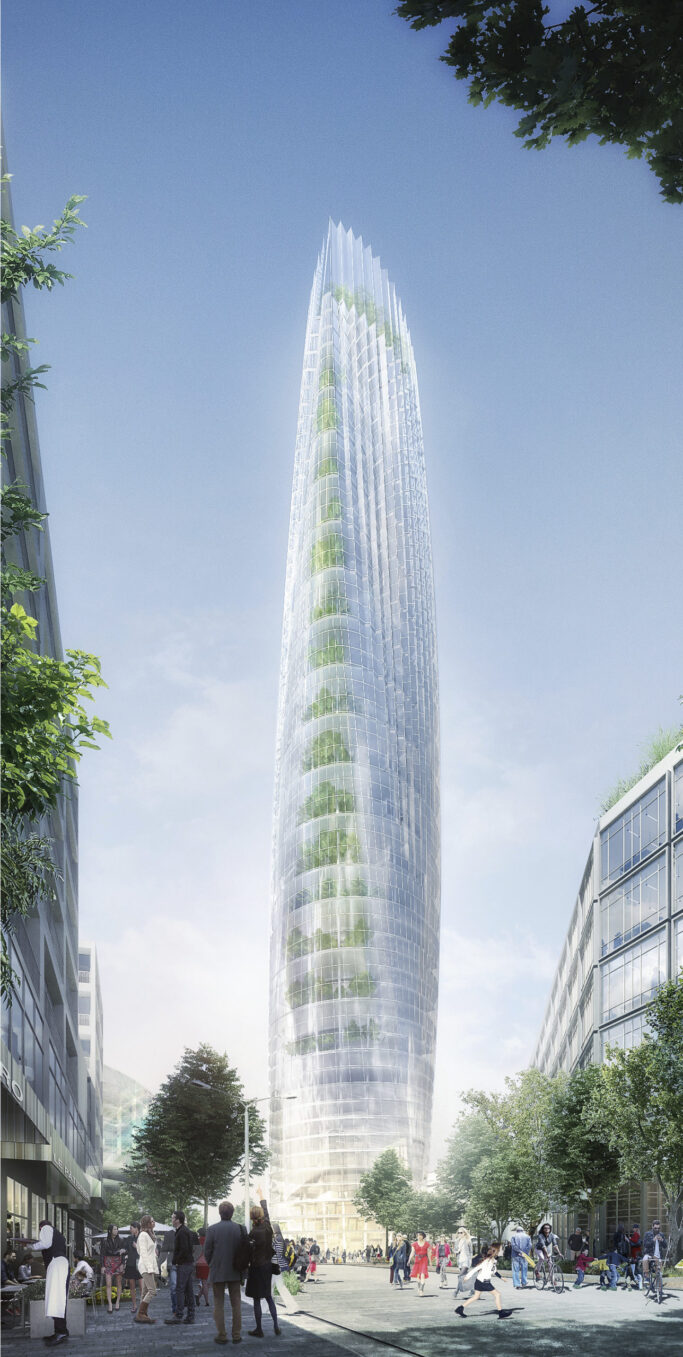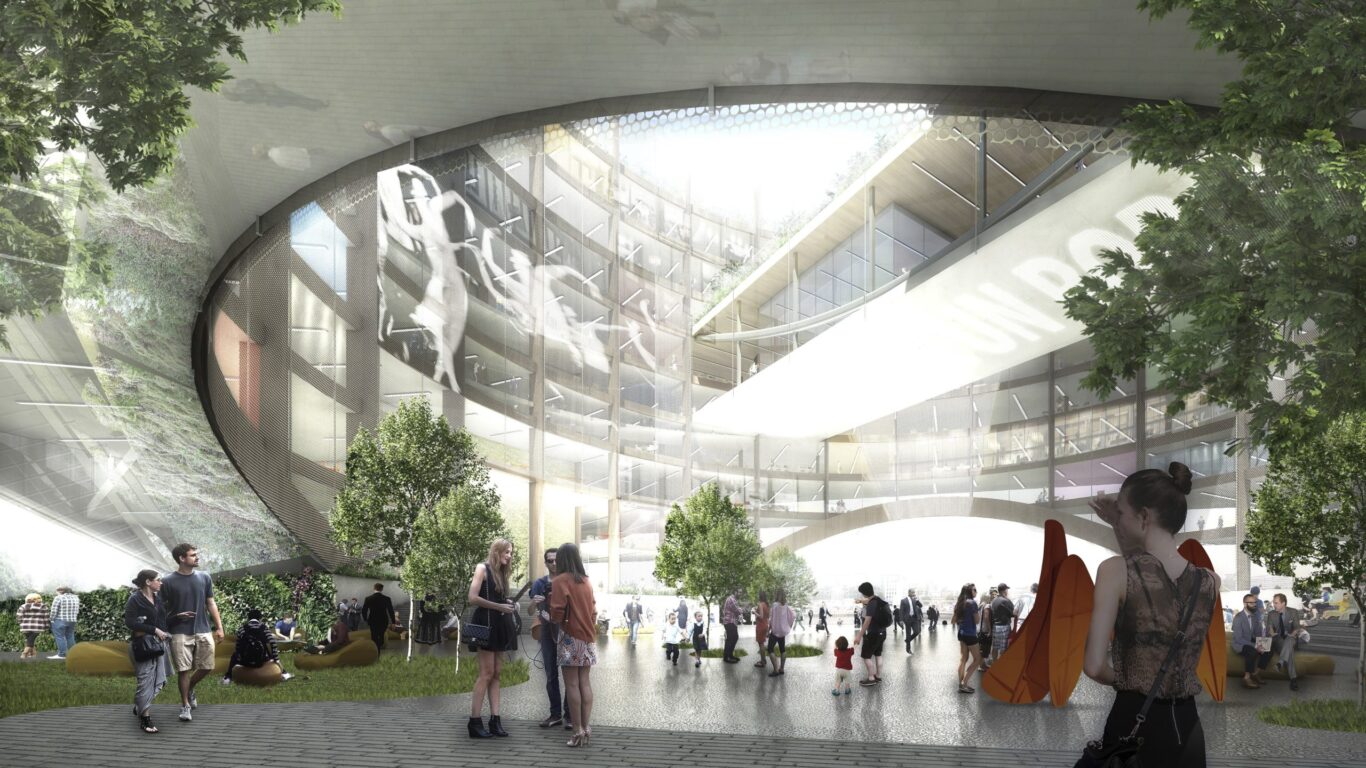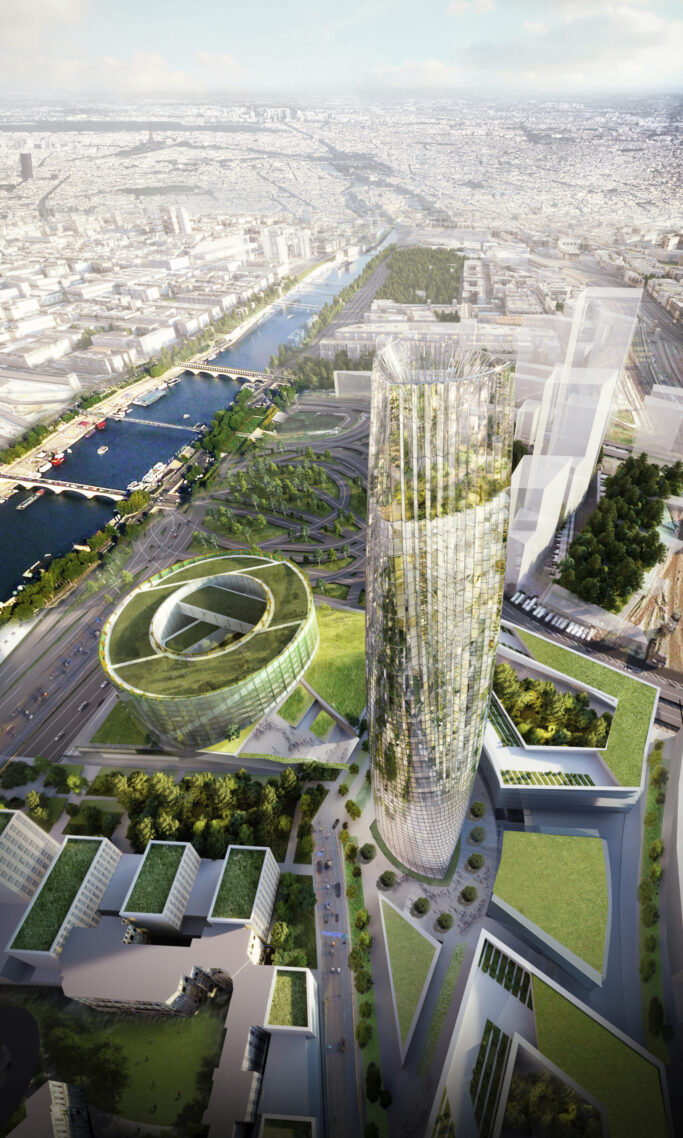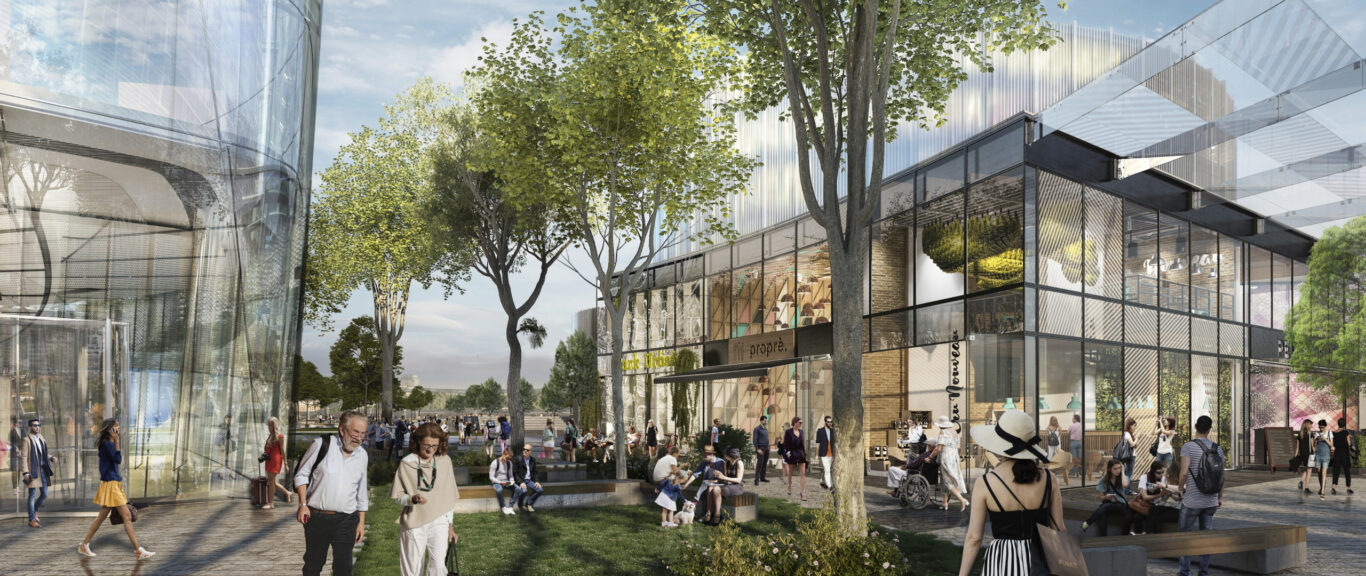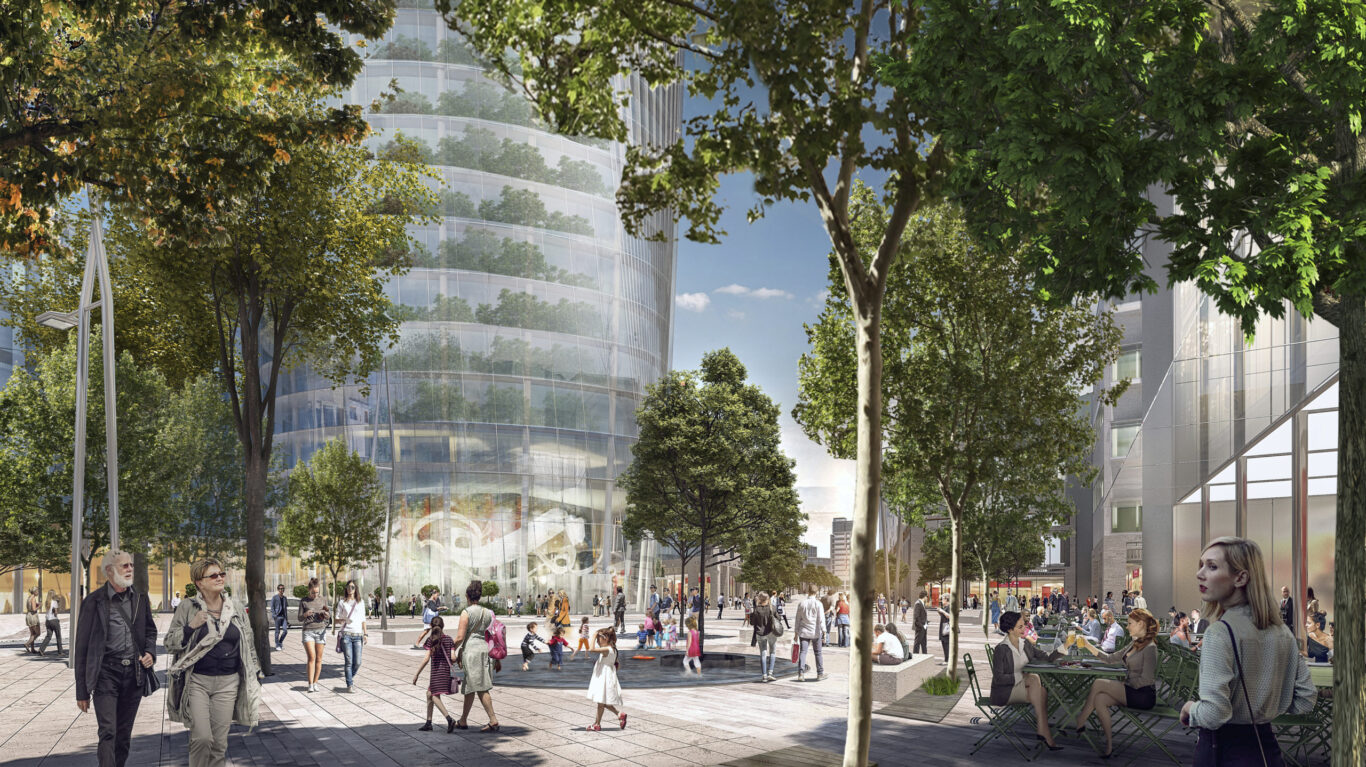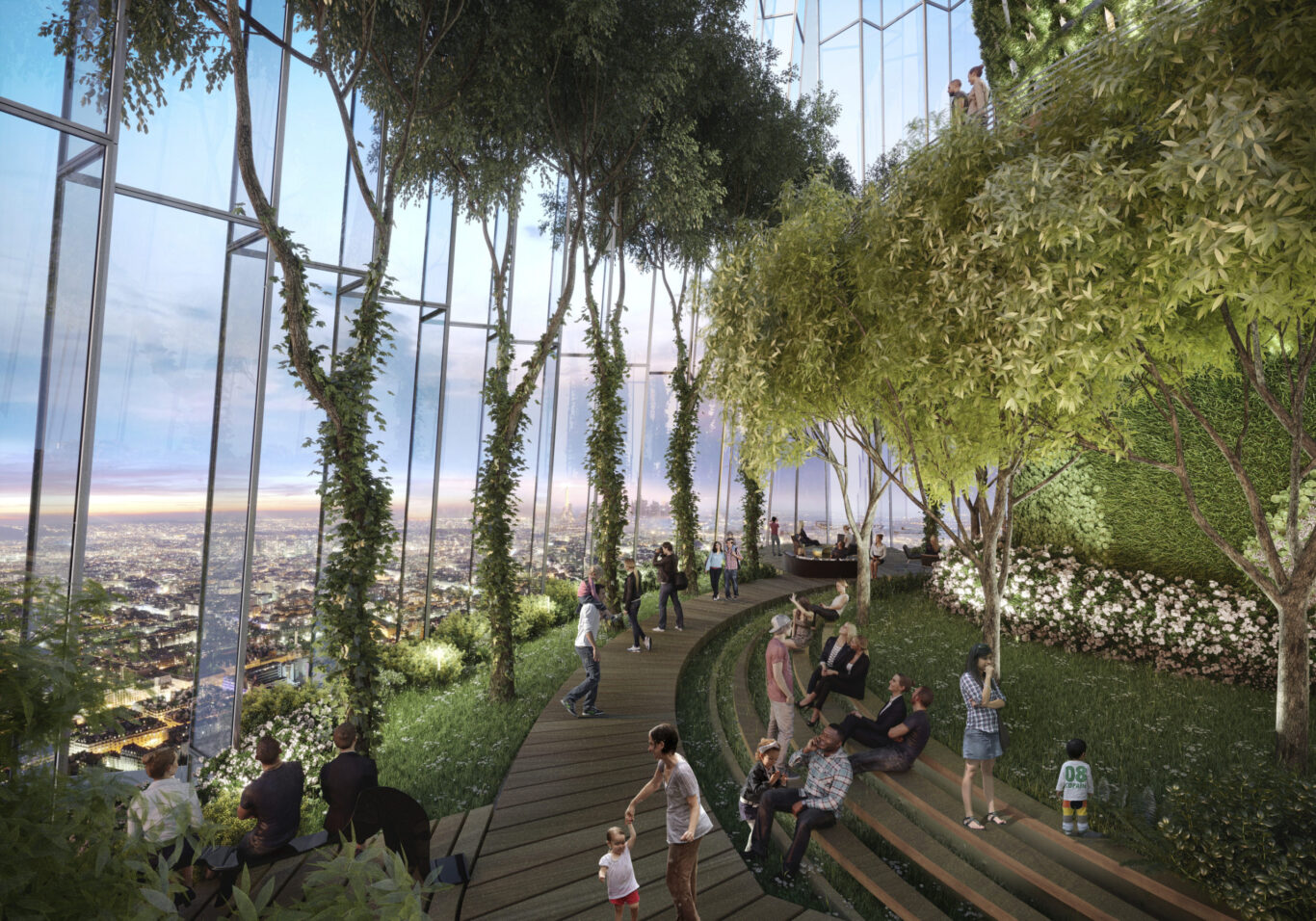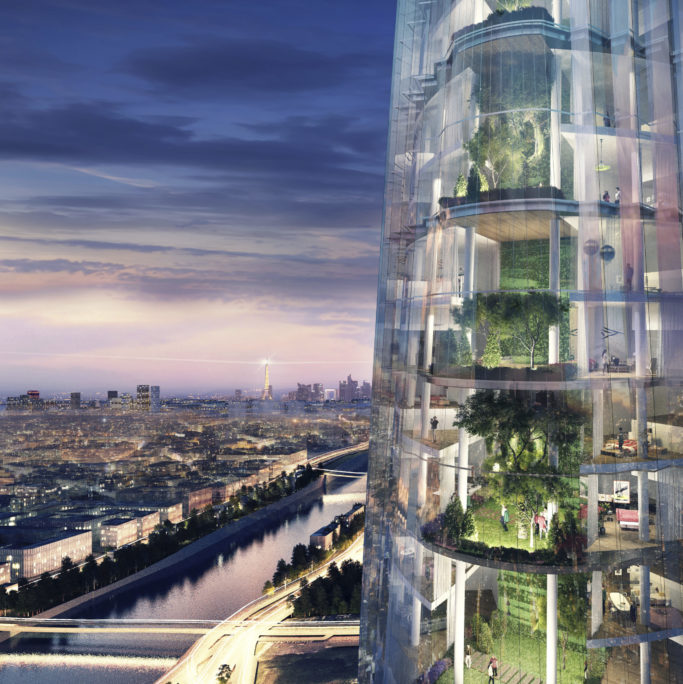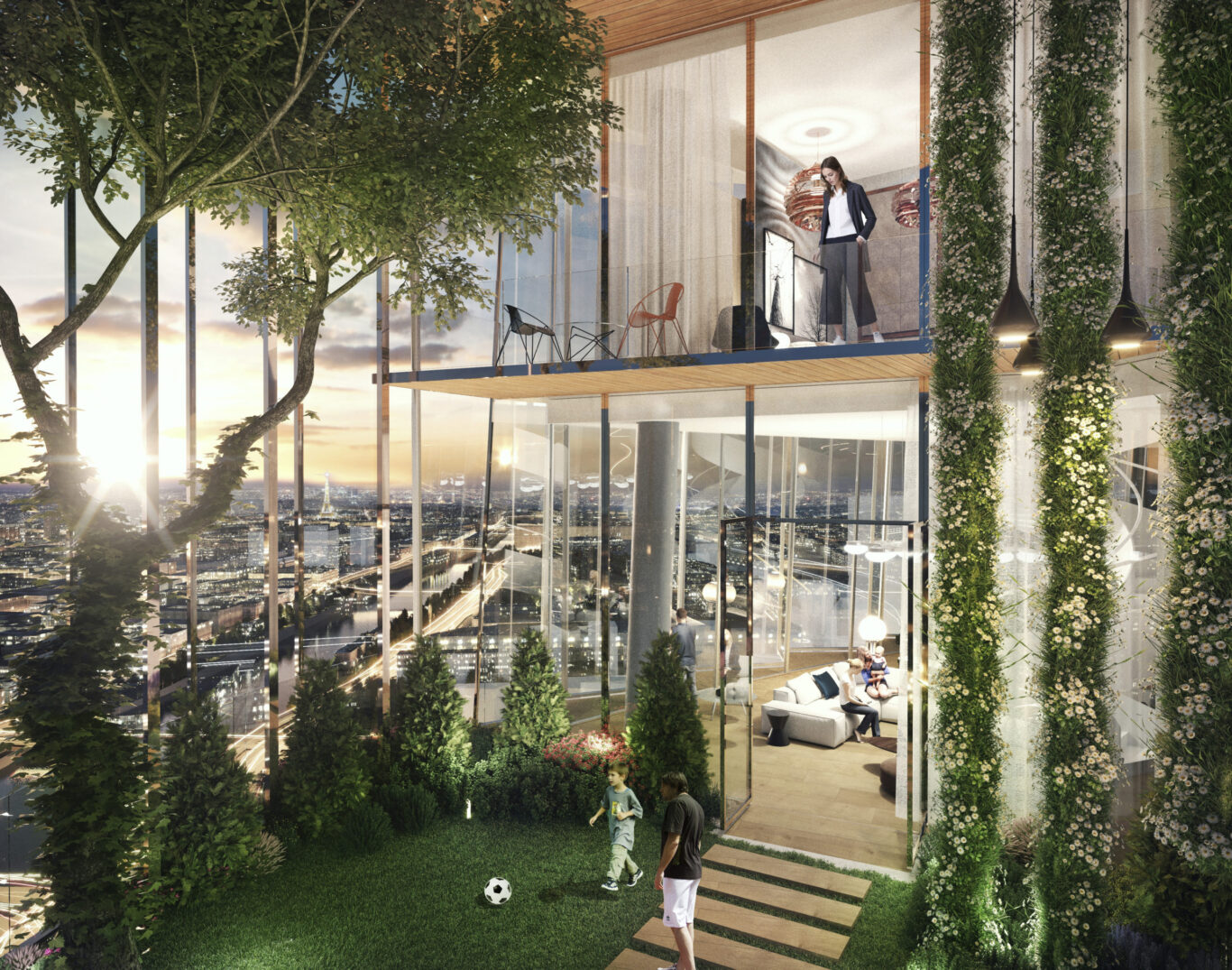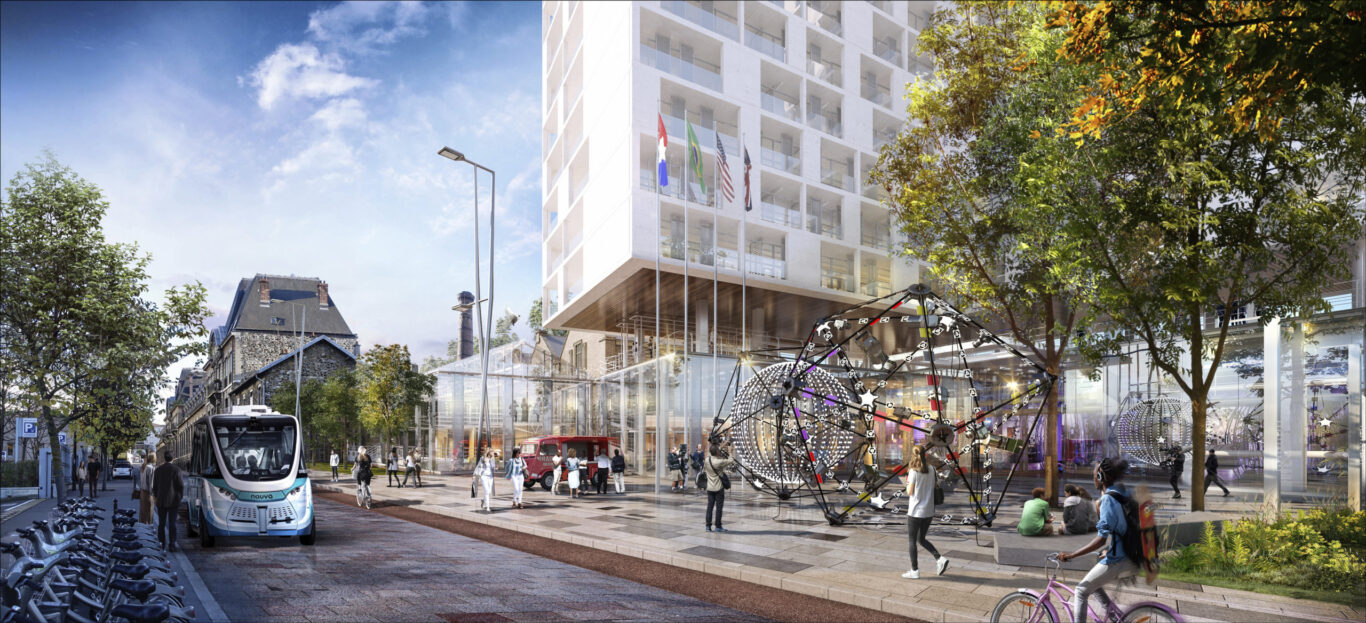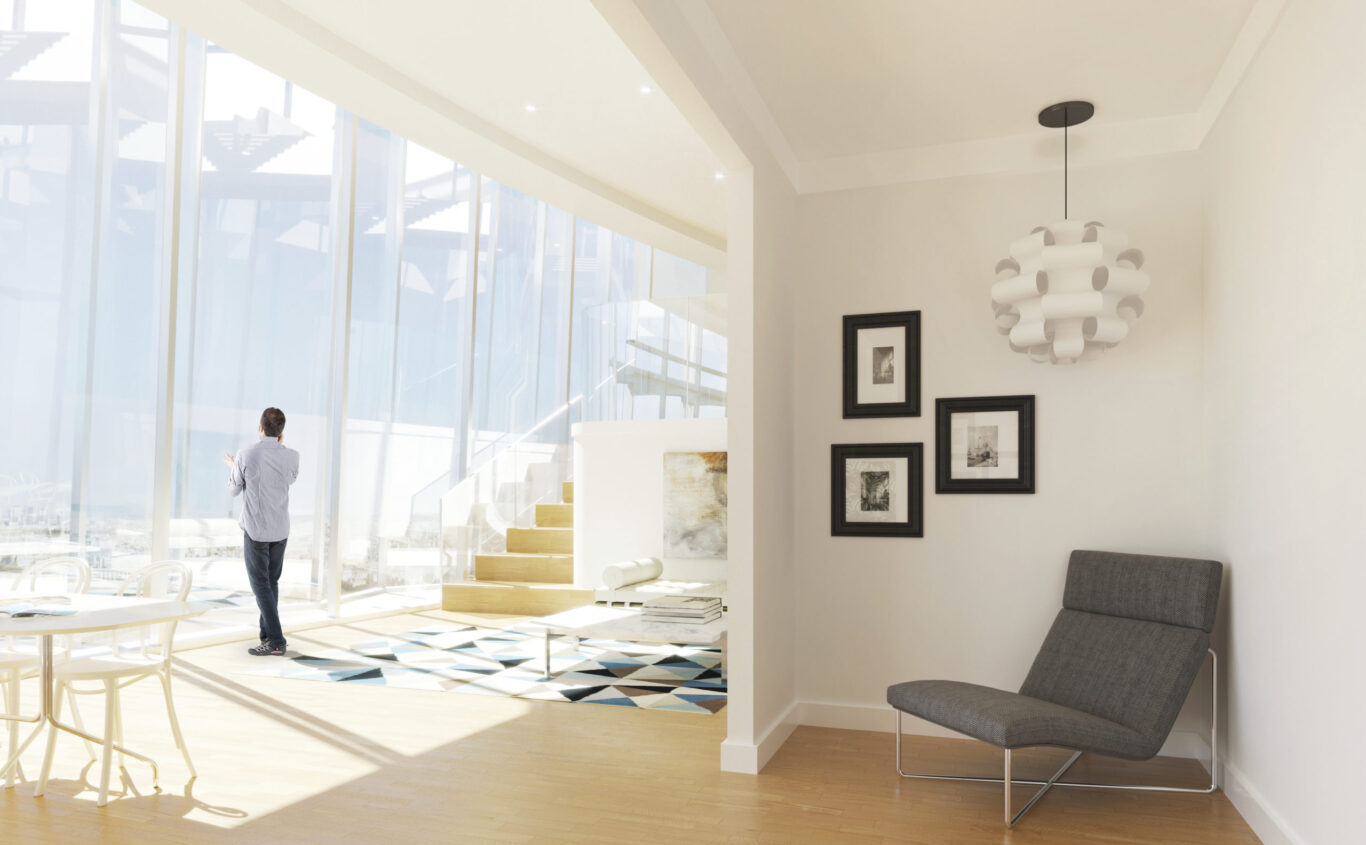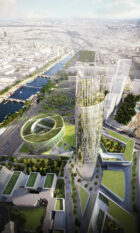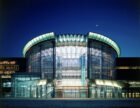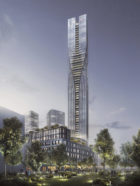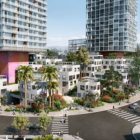Located in a former industrial zone on the eastern edge of Paris, the Charenton-Bercy district is one of 52 sites that make up the Grand Paris development plan for the wider metropolis. SOM led the creation of a master plan to transform Charenton-Bercy into a highly connected urban district, in support of the broader government initiative to link Central Paris with its suburbs.
The redeveloped district will feature a 180-meter-tall tower designed to achieve net-zero energy, as well as a low-rise circular building that will form the heart of a new tech hub for Paris. With a focus on virtual reality technology, this innovative structure will bring together a community of designers and developers for VR, AR, CGI, animation, and video games. Together with the hotel and residential tower, the wider district will include a new primary school, a public pool, a fitness center, and a network of outdoor public spaces. A landscaped garden bridge will cross above active rail lines to connect the district to its broader urban context, from the Bois de Vincennes to the River Seine.
The mixed-use skyscraper at the center of the district will feature “inside-outside” loft-style apartments, which represent a new model for living in Paris. At the same time, the building’s layout evokes the typical Parisian townhouse, with residential entrances situated within a central garden courtyard. The high-rise will be carefully integrated into the center of the district, surrounded at ground level by low-rise buildings, retail galleries, open-air cafés, and a new public plaza.
The development has a highly sustainable agenda: in addition to key buildings targeting net-zero energy, a third of the site is reserved for green space, while a further third will be occupied by buildings with green roofs. The district is also envisioned to become one of the first to be accredited with the WELL Community Standard™ by supporting health and well-being through inclusive, integrated and resilient design.
